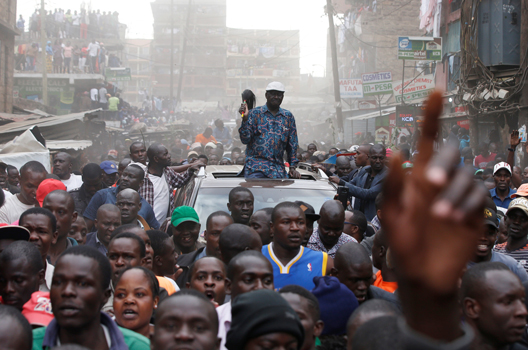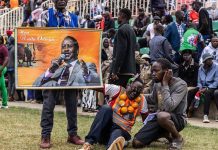By Faridah N Kulumba
Africa-Press-Kenya It is now less than four months for the world to know who will be the 5th president of the Republic of Kenya. Kenyans are set to cast their votes on 9th August this year. The hot race is between the number two in power Deputy President William Ruto and the leader of the opposition Raila Odinga for the Orange Democratic Movement (ODM). For many Kenyans, this will be the mother of all elections.
History
Kenya’s elections have always been marred by irregularities since the country transitioned to a multiparty political system in 1991 after 26 years of single-party rule. Elections have been a long ethnic line in many Kenyan communities and have been witnessed in several elections. Candidates and their allies have used tribal politics to turn people against one another.
Violence
Between 2007 and 2008, political violence, economic, and humanitarian crises erupted in Kenya after former President Mwai Kibaki was declared the winner of the presidential election held on December 27, 2007. These elections were fiercely disputed and triggered widespread violence throughout the country. This was the most violent crisis that had hit Kenya since the Mau-Mau uprising. In only two months, over a thousand people were killed and about 350,000 were forced to move around in search of refuge, and nearly 700, 000 people were internally displaced due to post-election violence.
Social media dangers
As the Kenyan general elections are around the corner, one of the biggest dangers comes much further from the United States and Chinese technology platforms. Essential discussions about the election are unfolding on platforms such as Twitter, Facebook, and Tik Tok. It’s on these platforms that crucial civic information – bus also disinformation and hate speech will be amplified. Meanwhile, Kenya receives just a fraction of the resources – if those platforms address similar issues in western elections. They have acquired a massive civic responsibility in the countries.
How tech platforms can be dangerous
These platforms already have an unpleasant history of abetting election disinformation across Kenya. In 2013 and 2017, President Kenyatta’s campaigns used Cambridge Analytica to create election branding and messaging that critics called “divisive propaganda” that inflamed ethnic tensions. Similarly, Google ran poisonous attack ads under the banner “The Real Raila” on its search and YouTube products from Harris Media a Texas-based right-wing media company that was also hired by Trump during his 2016 campaigns.
History repeats itself
According to the way things are now in Kenya, tech platforms are doing it all over again. In the past few months, work I published with Mozilla reported how Twitter’s complacency has allowed for the development of a thriving disinformation industry in Kenya, composed of influencers-for-hire who sell their services on the platform to politicians and political groups. This industry has repeatedly been used by various problematic actors to consolidate power and neutralize public outcry, from lawmakers to political groups abroad.
Findings
In 2021, Judges in Kenya and activists underwent wave after wave of attacks on Twitter as Kenyatta and Odinga sought to get their elite pact, titled Building the Bridges Initiative (BBI), past the court. Further investigations found that the same shady industry attempted to neutralize public outcry after Kenyatta was implicated in the Pandora Papers revelations ( along with other news organizations worldwide) in late 2021.
Foreign meddling
Right-wing political organizations in places such as Spain have been using platforms to the middle with Kenyans’ civic debate online, The Spanish organization CitzenGo ran campaigns over the past few years that Twitter amplified through its trending algorithm to millions of Kenyans in an attempt to oust politicians who support progressive legislation.
Allegations
Allegations about Facebook’s moderation efforts in Africa dim any optimism that big tech companies might learn from past failures. Time recently reported on the alleged poor pay and working conditions of Facebook’s content moderators in Kenya. Moderators claimed that speed was prioritized over all else, including health. There are many criticisms that Facebook content moderators around the world are treated poorly, but the low pay and poor conditions in moderation subcontractor of discrimination and rights abuses after the working conditions left many of them with Post-traumatic disorder (PTSD).
Since the revelations came to light Meta and Sama have been served with legal letters for breaking multiple sections of Kenya’s labour laws. Such a situation means that hate speech and incitement will continue to run rampant on the platform.
Solution
As the Kenyan election draws nearer. Many platforms are still unwilling to publicly commit to a roadmap that outlines how they are going to fight misinformation and disinformation. Tech platforms should inform Kenyan users about how they will use algorithms to spot hate speech and election-related disinformation; how they will foster relationships with civil society to fact check content in English and other local languages. And how these platforms can help Kenyans to access accurate information about elections. The platforms have an outsized responsibility to protect Kenyan civil society and democratic discourse.






